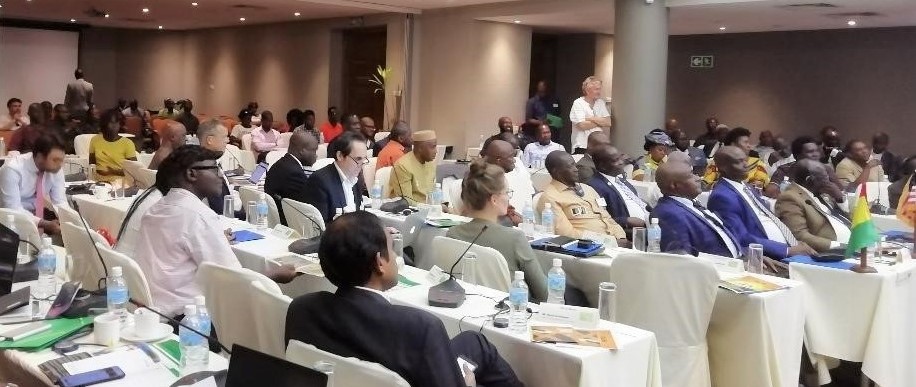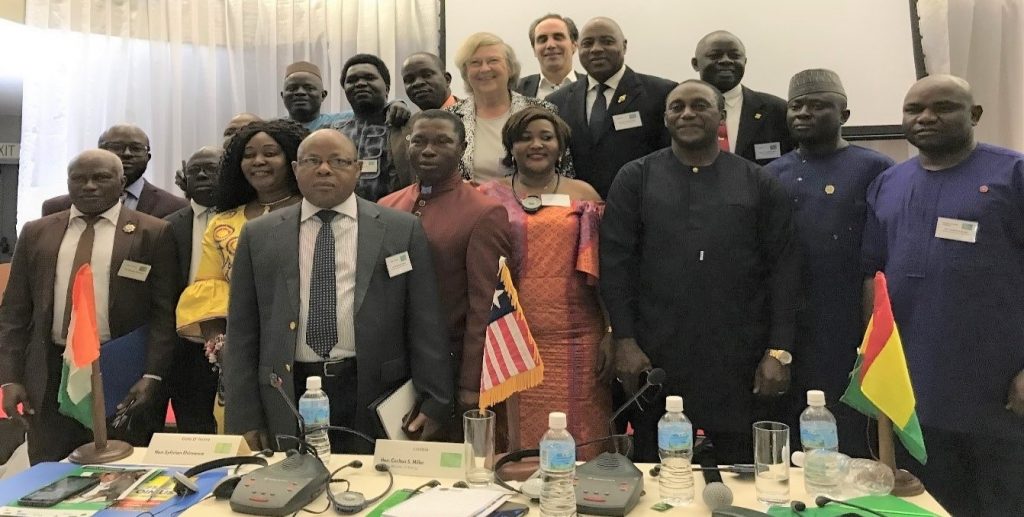
Expanding access to clean energy solutions on the African continent in the face of the climate crisis and rapid economic changes are essential. This must explicitly include the cooking sector, which has been neglected politically so far. At the first joint ministerial and parliamentarian conference to discuss Decentralized Renewable Energy (DRE) and Clean Cooking issues in the Mano River Union (MRU), Sierra Leone´s MP and former United Nations Under-Secretary-General and Special Representative of the Secretary-General for Sustainable Energy for All, Dr Kandeh Yumkella stated: „it was unique that clean cooking was accorded the same degree of importance as DRE.“
According to the World Health Organisation 4.3 Million premature deaths each year are caused through exposure to air pollution from cooking with solid fuels. This causes serious consequences for the health – of foremost women and children –, leads to deforestation, soil erosion and other environmental and biodiversity loss. One solution would be to move “beyond fire” and expand cooking based on renewable electricity generation.
Against this backdrop, the first high-level Conference of the MRU on Renewable Energy and Clean Cooking took place on the 18th and 19th November 2019 in Freetown, Sierra Leone and brought together about 150 policymakers and experts. Participants included Julius Maada Bio, President of Sierra Leone, Alhaji Kanja Sesay, the country´s Minister of Energy, alongside with Ministers and Deputy Ministers of Energy from the other Mano River Union Countries – Guinea, Liberia, and Ivory Coast – about 30 legislators from the region as well as national and international Nongovernmental Organisations, Businesses, Research Institutions as well as Ambassadors to Sierra Leone of Germany and the USA.

The Global Renewables Congress Chair Bärbel Höhn concluded that the conference, “clearly demonstrated that access to renewable energy and clean cooking solutions is a key foundation for inclusive growth and development.”
The Global Renewables Congress Chair Bärbel Höhn concluded that the conference, “clearly demonstrated that access to renewable energy and clean cooking solutions is a key foundation for inclusive growth and development.”
Great emphasis must be on halting deforestation in the MRU countries causing enormous environmental damage. Therefore, the way how we produce energy and prepare food are questions that are also closely attached to agriculture and forestry policies. Also, water preservation, healthy environment, protection of the health are all important aspects of the discussion on clean cooking. This proves that developing RE policies can tackle several other development priorities, in fact, it can be a tool to implement Agenda 2030 with its SDGs. Therefore, an inclusive policy dialogue across policy areas is vital.
Further, in their respective constituency, parliamentarians can play a role in encouraging local entrepreneurship to invest and involve in RE and hereby catalyse employment and innovative business models. In this context, legislators´ role to provide investment security is crucial. By providing the enabling policy framework, they can also push development banks to shift funds from fossils to renewables as well as lower the interest rate for RE investments.

In a session, particularly dedicated to “The role of Parliament in Renewable Energy Development – regulatory environment, financial incentives, target setting”, it was stated that Parliamentarians as representatives of their constituency must go above the constitutional mandate and support Renewable Energy (RE). They need to help to create awareness within their community by developing opportunities for the people to participate and create ownership.
The discussions throughout the conference unveiled that one of the key barriers to scaling up RE and clean cooking solutions is a lack of knowledge and awareness among citizens for the potential and opportunities of these technologies. Hence, legislators are asked to introduce compulsory education for boys and girls. This can contribute to an improved valuing of nature and understanding the potential of RE in economic, social development in energy, agriculture, and increase local and specialised entrepreneurship.
Finally, legislators highlighted the need to institutionalise mutual policy learning and peer-to-peer exchange within a parliamentarian, cross-partisan network on renewable energies and therefore appreciated indeed the establishment of the GRC.
The Final Declaration of the Conference, the Freetown Declaration, reiterates the urgent need of a consensus on renewable energies and the role of parliamentarians in harmonizing policies and regulatory frameworks as well as creating a common sub-regional market for the scale-up of Renewable Energy sources and technical solutions. Clean cooking has been recognised as the cause of severe and threatening social and environmental problems and the statement also calls for commitments to “determined actions on clean cooking at the highest political level”. Furthermore, the development of a roadmap for regional energy market integration and implementation of the recommendation from this first high-level conference on renewable energy and clean cooking has been recommended. Participants have committed themselves to establish the Mano River Union Conference as an annual event in the sub-region.
The High-Level Conference on Renewable Energy & Clean Cooking was organized by the Energy Nexus Network, Global Renewables Congress, Hivos, Tony Blair Institute and the World Future Council and held in partnership with the Ministry of Energy of Sierra Leone.

Media Feedback:
Awoko Independent, Sierra Leone
Sierra Leone Telegraph, Sierra Leone
The New Dawn, Liberia
Political Analysis, South Africa
AYV Newspaper, Sierra Leone
Politico SL, Sierra Leone
For further information on the key topics, attendees and agenda, please download this document. T
You can download the official MRU Conference Report here.
For further information, please contact Naemie Dubbels at the Secretariate of the Global Renewables Congress.
by Naemie Dubbels, Junior Project Manager
